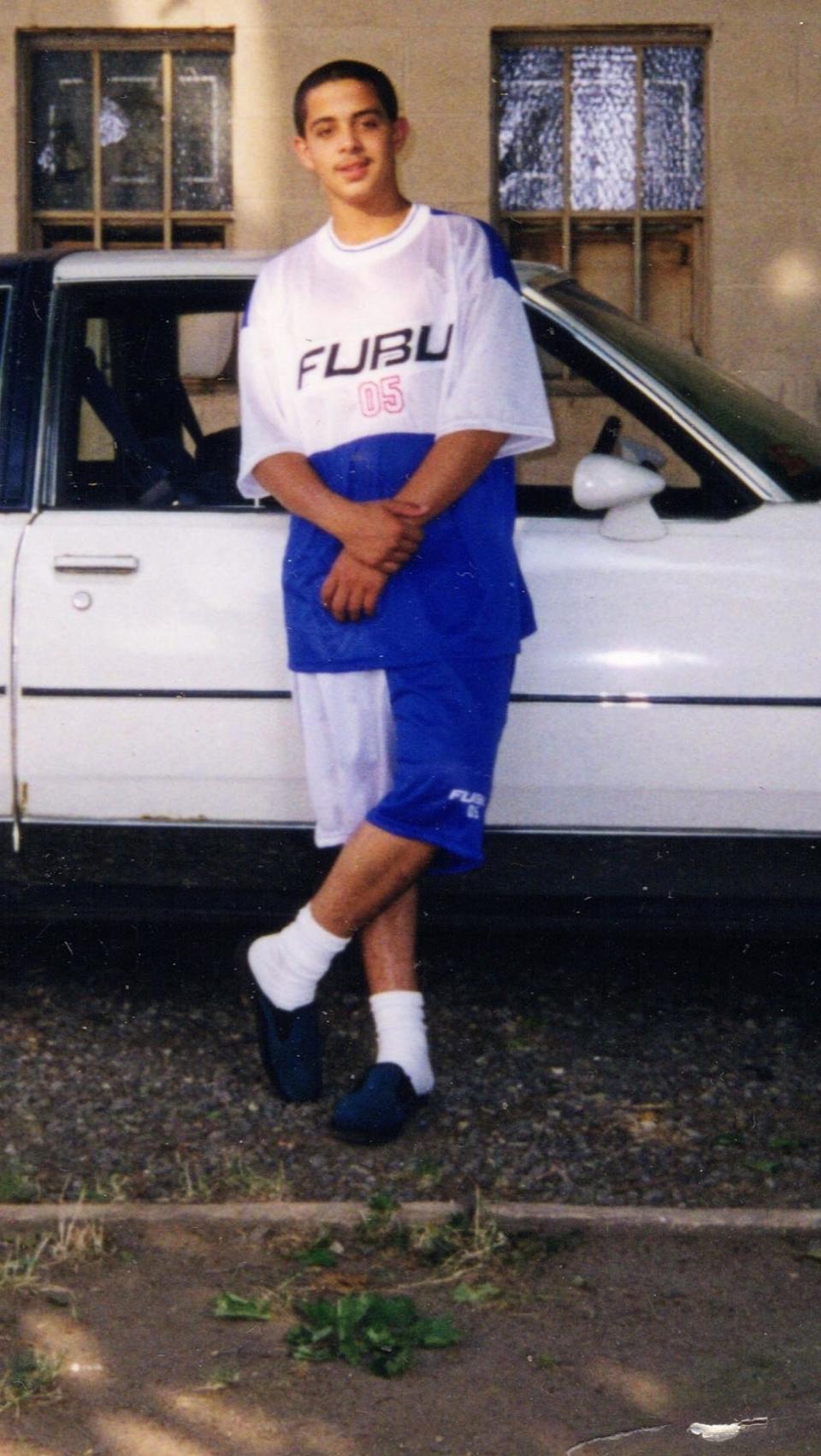After serving 20 years, Mario of 'Mario's Law' could get parole under law bearing his name
PROVIDENCE – Criminal justice reform advocates are hailing a court ruling that grants parole eligibility to the man whose efforts to redeem himself helped lead to passage of the state’s Youthful Offender Act.
Superior Court Judge Stephen Nugent ruled Wednesday that 39-year-old Mario Monteiro is eligible for parole, rejecting the state’s arguments that he must serve an additional 15 years in prison before being up for review.
Monteiro’s case served as the impetus for the Youthful Offender Act – known colloquially as Mario’s Law, after Monteiro. Passed in 2021, the law grants parole eligibility to people sentenced for crimes committed before they turned 22 once they have served 20 years in prison, except in cases in which an individual is serving life without the possibility of parole.
“The court’s decision vindicates the General Assembly’s humane position that young offenders deserve a second chance,” said Lynette Labinger, who represented Monteiro on behalf of the state affiliate of the American Civil Liberties Union. “Mario’s rehabilitation after 20 years in prison is a testament to the wisdom of the legislature’s actions, and we are pleased that the court has recognized there is no validity to the state’s attempt to undermine that law.”
A spokesman for Attorney General Peter F. Neronha’s office declined comment, saying the ruling was being reviewed.
More on Mario's case: ACLU fights for release of youthful offender; RI officials say law doesn't apply to him
Monteiro’s past
Monteiro was 17 years old when he fatally shot a Cambodian immigrant, Rom Peov, on July 3, 2001, during an ongoing gang feud.
Sitting on a stoop with friends on Hanover Street drinking a beer, Peov, 31, was an innocent bystander to the gang conflict.
A jury convicted Monteiro in 2002, and he was sentenced to two mandatory consecutive life terms.

Board grants Monteiro parole
The Parole Board unanimously granted Monteiro parole in December 2021 but took the position that he was paroled to begin serving his second life sentence. Nonetheless, the board recognized Monteiro’s rehabilitative efforts, including becoming an anti-gang advocate and mentor to young prisoners, earning a high school diploma and securing a full-time job upon his release.
The board’s decision to hold him as he served his remaining sentence was guided by a new internal method the state Department of Corrections uses for calculating parole eligibility that disaggregates consecutive sentences.
Monteiro challenged the state’s stance last year, arguing that the interpretation was "absurd and illogical" and contrary to the express terms of the act. The law extends parole review to “any offense” committed by a youthful offender after that person has served 20 years.
More: Do long sentences for young offenders merit 'second look'? Judge asks lawmakers for leeway
Judge Nugent’s ruling
The state argued that the youthful-offender provision didn’t apply to Monteiro’s second consecutive life sentence and impinged upon the separation-of-powers doctrine by legislatively intervening in a judicially imposed sentence. In essence, the state argued, it represented an “impermissible encroachment” by state lawmakers into an area reserved for the judiciary.
Nugent dismissed those arguments, concluding that if the legislature intended to separate various sentences for parole consideration, it would have specified that the law apply to “any single offense.”
He determined, too, that parole did not represent a “modification” of a sentence because the person would remain subject to the underlying sentence. The law leaves the discretion to the Parole Board, part of the state’s executive branch, to decide whether to grant parole on a case-by-case basis, he said.
“Most importantly, it bears mention that petitioner’s parole does not amount to a get-out-of-jail-free card; rather, petitioner will remain subject to revocation of his parole and being ordered to serve inside the walls of the ACI if he violates the conditions of his parole,” Nugent wrote in finding that the law doesn’t violate the separation of powers.
U.S. Supreme Court guidance
In ruling, Nugent looked to parole reforms enacted in other states based on U.S. Supreme Court opinions addressing the sentencing of juveniles. The high court in 2005 ruled it was unconstitutional to impose a death sentence on juveniles and, in 2012, it held the same for life-without-parole terms for youth, except in cases involving homicide.
The Rhode Island law is based on the U.S. Supreme Court's recognition that juveniles lack full culpability due to their immaturity “even when they commit terrible crimes,” says the ACLU.
This article originally appeared on The Providence Journal: Mario Monteiro could get parole after judge's ruling

